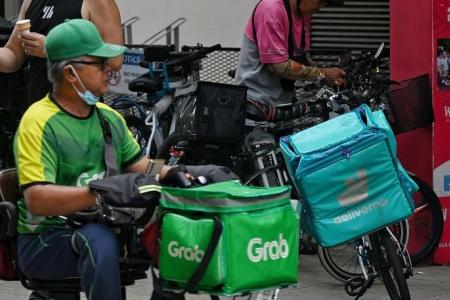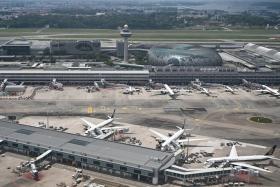Simpler tax-filing for commission agents, delivery workers
More than 100,000 commission agents will have an easier time filing taxes in 2024 as their tax returns will now come pre-filled with income information.
Delivery workers can claim tax deductions for business expenses based on a fixed proportion of their annual gross income, instead of doing so based on the actual amount of allowable business expenses incurred.
The changes to simplify tax-filing for those who are self-employed were announced by the Inland Revenue Authority of Singapore (Iras) on March 6.
For those earning commissions, the tax agency said it had gleaned their income information from about 650 commission-paying firms.
It had requested the information from about 700 firms, but not all had responded by the March 1 deadline.
Having their tax returns pre-filled with their commission income information will be more accurate, Iras said.
At the same time, qualifying commission agents can also benefit from the automatic computation of the fixed expense deduction ratio (FEDR).
The FEDR allows qualifying individuals to claim a deemed amount of business expenses based on a prescribed percentage of the gross income earned. The process is simpler than claiming tax deductions based on the actual amount of allowable business expenses incurred.
With this change, some commission agents can also make use of the no-filing system, which more than 1.8 million taxpayers are eligible for.
Under the no-filing system, taxpayers need not file an income tax return. Instead, they need to only verify the accuracy of their income information and check their eligibility for any tax reliefs.
Meanwhile, delivery workers, including food delivery riders, can now make use of the FEDR.
Previously, this was limited to only commission agents, private-hire car and taxi drivers.
To qualify, a delivery worker must earn a total annual gross income of $50,000 or less from delivery services.
They must also use only specific modes of delivery, with the FEDR claimable depending on the mode used.
Delivery workers who work on foot, or make use of public transport or bicycles can claim FEDR of 20 per cent on their annual gross income from delivery services.
Those who use motorised personal mobility devices, power-assisted bicycles or motorcycles can claim 35 per cent, while those making deliveries by van can claim 60 per cent.
If an individual uses multiple delivery modes, Iras said the respective FEDR should be applied to the corresponding income earned under each mode of transport.
However, if one of the modes does not have an FEDR, such as using a car to make deliveries, then delivery workers will not be able to claim FEDR at all. Instead, they will have to claim their tax deductions based on the actual allowable business expenses for all the delivery modes used.
Get The New Paper on your phone with the free TNP app. Download from the Apple App Store or Google Play Store now


